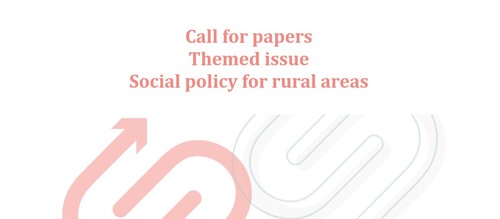Reviewing procedure
- Manuscripts are sent to reviewers if they meet the quality criteria and the following conditions:
a) The article cannot include unacceptable borrowing (texts are checked with an electronic anti-plagiarism system).
b) The author has submitted:
- a declaration on the ownership of copyrights to the submitted manuscript, the contribution of third parties, sources of financing, the input of research and scientific institutions, associations and other entities (if the paper is reporting the results of a research project),
- a declaration on ghostwriting and guest authorship,
- consent to the processing of personal data.
c) The author has provided:
- her/his ORCID number,
- affiliation,
- correspondence address,
- information on all sources of financing, the input of research and scientific institutions, associations and other entities. The authors are requested in particular to provide sources of financing of the research and the role of the sponsor in planning, conducting and analysing the research and the sponsor’s potential influence on the paper’s contents; other affiliations (including employment, consultancy, preparation of paid expertise) that may result in the article creating a conflict of interest,
- a short biography.
- The decision as to whether or not to forward a text for peer review is preceded by an internal editorial evaluation, performed by members of the editorial board (including the topic editor and, if justified, the statistical editor). The articles are assessed for substantive and cognitive value. As a result of this assessment, the article may be:
a) forwarded to review,
b) returned to the author with a recommendation to introduce changes,
c) returned to the author as not qualified for further editorial work.
- The author(s)’ origin, nationality, ethnic origin, political views, gender, race or religious convictions do not influence how the article is assessed.
- A review of each publication is prepared by two independent referees. Where their assessments are in contrast, the Editor may appoint a third referee. The final decision on publishing or rejecting the article is made by the Editor-in-chief.
- Referees are specialists employed at institutions other than the one to which the Author claims affiliation. For authors from outside Poland, at least one referee cones from a country other than the one that is home to the institution to which the author claims affiliation.
- The referee assesses the paper in a custom review form. The review form is available for inspection on the journal’s website.
- The journal uses a double-blind review process, meaning the author and referee are unaware of each other’s identities.
- The referee submits a statement affirming no conflict of interest in relation to the article she/he is to review. Referees may not assess papers if a conflict of interests is observed, pertaining to, in particular, their relation to the author, company or institution involved with the paper.
- Referees are obliged to notify the editorial board of potential breaches of ethical standards by the author(s), including each valid likeness, partial overlapping of contents with any other published work known to them or suspicion of plagiarism.
- The Editor sends the referees an anonymised manuscript, and then the author(s) the reviews with all referee data removed. At this stage, the author is also sent the information that the paper has been:
a) accepted for publication as is,
b) accepted for publication once the revisions are made in response to the review and the comments from the editorial board,
c) rejected from publication in its current form while requesting the author introduce substantial changes to the article, which will be considered further,
d) rejected from publication.
- The author submits the revised manuscript in two versions: with track changes and without track changes. Apart from submitting the corrected version of the article, the author is obliged to send a response to the reviews to the editor, addressing, in particular, the feedback from the referees or the editorial board that have not been implemented.
- The final decision to publish or reject an article is made after the editorial board receives the corrected text and the response to the reviews. At this stage, the editorial board reserves the right to request the author introduce further corrections.
- The list of referees for Problemy Polityki Społecznej. Social Policy Issues in a given year is public and available on the journal’s website and published in each volume.
We process personal data collected when visiting the website. The function of obtaining information about users and their behavior is carried out by voluntarily entered information in forms and saving cookies in end devices. Data, including cookies, are used to provide services, improve the user experience and to analyze the traffic in accordance with the Privacy policy. Data are also collected and processed by Google Analytics tool (more).
You can change cookies settings in your browser. Restricted use of cookies in the browser configuration may affect some functionalities of the website.
You can change cookies settings in your browser. Restricted use of cookies in the browser configuration may affect some functionalities of the website.


